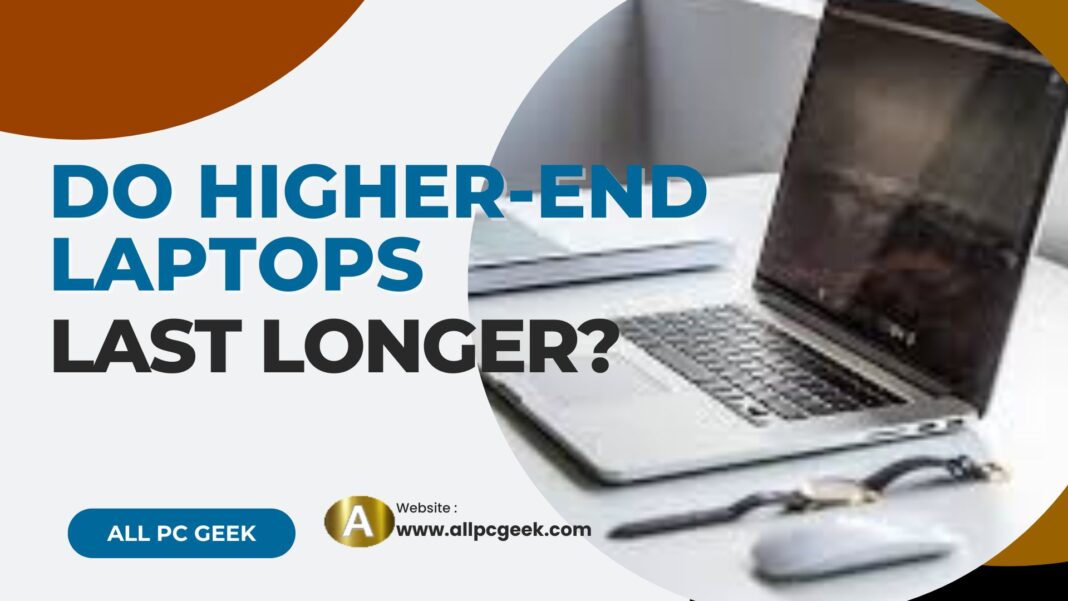When investing in a new laptop, one question often comes to mind: Do higher-end laptops last longer? With prices ranging from budget-friendly to premium, it’s natural to wonder if spending more translates to a longer lifespan. In this comprehensive guide, we’ll explore the factors that influence laptop longevity, compare higher-end and budget models, and provide actionable insights to help you make an informed decision. Whether you’re a student, professional, or casual user, understanding what makes a laptop durable can save you time, money, and frustration.
What Defines a Higher-End Laptop?
Higher-end laptops are typically characterized by premium build quality, advanced components, and cutting-edge features. Brands like Apple, Dell, Lenovo, and HP often dominate this category with models like the MacBook Pro, Dell XPS, or Lenovo ThinkPad X1 Carbon. These laptops boast powerful processors (e.g., Intel Core i7/i9 or AMD Ryzen 7/9), ample RAM (16GB or more), high-quality displays, and durable materials like aluminum or magnesium alloy. But does this premium price tag guarantee a longer lifespan? Let’s dive deeper.
Build Quality: The Foundation of Durability
One of the most significant differences between higher-end and budget laptops is build quality. Premium laptops often use robust materials like aluminum, carbon fiber, or magnesium alloy, which resist wear and tear better than the plastic chassis found in many budget models. For example, the MacBook Pro’s unibody aluminum design is not only sleek but also highly resistant to scratches and dents. A sturdy build can protect internal components from physical damage, contributing to a longer laptop lifespan.
Component Quality: Power vs. Longevity
Higher-end laptops typically feature top-tier components, such as SSDs (Solid State Drives) instead of HDDs (Hard Disk Drives), which are faster and less prone to mechanical failure. Premium processors and GPUs (Graphics Processing Units) are designed to handle intensive tasks like video editing or gaming without overheating, which can extend the laptop’s usable life. However, high-performance components can generate more heat, potentially stressing the system over time if not paired with effective cooling solutions.
Cooling Systems: Keeping Your Laptop Healthy
Effective thermal management is critical for laptop longevity. Higher-end laptops often include advanced cooling systems, such as vapor chambers or multiple fans, to dissipate heat efficiently. For instance, gaming laptops like the ASUS ROG Zephyrus or Razer Blade use sophisticated cooling designs to prevent thermal throttling, which can degrade components over time. Budget laptops, on the other hand, may rely on basic cooling, leading to overheating and reduced lifespan during heavy use.
Battery Life and Longevity
Battery health is a key factor in determining how long a laptop remains functional. Higher-end laptops often feature larger, higher-quality batteries with advanced management systems to optimize charge cycles. For example, Apple’s MacBook lineup is known for retaining battery health over years of use. Budget laptops may have smaller batteries that degrade faster, requiring replacement sooner. Proper battery care, like avoiding constant full discharges, can further extend longevity regardless of the laptop’s price tier.
Software and Updates: The Role of Support
Software support significantly impacts a laptop’s lifespan. Higher-end laptops, particularly from brands like Apple and Microsoft, often receive longer software update cycles. For instance, macOS updates are supported on MacBooks for 7–10 years, ensuring compatibility with new apps and security patches. Budget laptops running Windows or ChromeOS may receive shorter update periods, potentially rendering them obsolete sooner. Regular updates keep your laptop secure and functional for longer.
Upgradeability: Extending the Life of Your Laptop
One area where budget laptops sometimes outshine higher-end models is upgradeability. Many premium laptops, like MacBooks, have soldered RAM and storage, making upgrades impossible. In contrast, some mid-range or budget laptops allow users to upgrade RAM or swap out drives, extending their usability as software demands increase. For example, Lenovo’s ThinkPad series often offers upgradeable components, making it a favorite for professionals seeking long-term value.
Brand Reputation and Warranty
Reputable brands behind higher-end laptops often provide better customer support and warranties. A 2–3-year warranty, common with premium models, can cover repairs or replacements, effectively extending the laptop’s life. Brands like Dell and HP offer extended warranty options, while budget brands may provide only one year of coverage. Additionally, higher-end laptops undergo rigorous quality testing, reducing the likelihood of early failures compared to some budget alternatives.
Usage Patterns: How You Impact Longevity
How you use your laptop plays a massive role in its lifespan, regardless of price. Heavy tasks like gaming, video editing, or running multiple virtual machines can stress even the best laptops, potentially shortening their life. Conversely, light tasks like browsing, document editing, or streaming may allow a budget laptop to last just as long as a premium one. Proper maintenance, such as regular cleaning to prevent dust buildup and avoiding extreme temperatures, can help any laptop last longer.
Cost vs. Value: Are Higher-End Laptops Worth It?
Higher-end laptops often come with a steep price tag, but do they offer better value in terms of longevity? The answer depends on your needs. If you require a laptop for demanding tasks or want a device that remains relevant for 5–7 years, a premium model may justify the cost. However, for basic tasks like web browsing or word processing, a well-maintained budget laptop can last nearly as long, especially with upgrades. Consider your budget, usage, and desired lifespan when deciding.
Real-World Examples: Lifespan in Action
To illustrate, let’s look at real-world examples. A 2015 MacBook Pro, a higher-end model at the time, is still usable in 2025 for many tasks due to its durable build and long software support. In contrast, a budget laptop from the same year may struggle with modern software or have a degraded battery. However, a mid-range Lenovo IdeaPad with upgraded RAM and an SSD can still perform admirably, showing that strategic upgrades can close the longevity gap.
Tips to Maximize Your Laptop’s Lifespan
Regardless of whether you choose a higher-end or budget laptop, these tips can help extend its life:
- Keep it clean: Regularly remove dust from vents and fans to prevent overheating.
- Manage battery health: Avoid letting the battery drain to 0% frequently; aim for 20–80% charge cycles.
- Update software: Install the latest OS and security updates to maintain performance and security.
- Use a cooling pad: For intensive tasks, a cooling pad can reduce thermal stress.
- Invest in a quality case: Protect your laptop from physical damage during travel.
Environmental Factors: Where You Use Your Laptop Matters
Environmental conditions can affect laptop longevity. High humidity, extreme temperatures, or dusty environments can accelerate wear on both budget and premium laptops. Higher-end models with sealed designs or military-grade durability (e.g., MIL-STD-810G certification) are better equipped to handle harsh conditions. If you work in challenging environments, a ruggedized premium laptop like the Panasonic Toughbook may outlast standard models.
The Verdict: Do Higher-End Laptops Last Longer?
In general, higher-end laptops have the potential to last longer due to superior build quality, better components, advanced cooling, and longer software support. However, the actual lifespan depends on usage, maintenance, and upgradeability. A well-maintained budget laptop can last 4–6 years for light tasks, while a premium laptop may remain functional for 7–10 years, especially for demanding workloads. Weigh your needs, budget, and maintenance habits before investing.
Conclusion: Make an Informed Choice
Choosing between a higher-end and budget laptop comes down to your priorities. If durability, performance, and long-term software support are critical, a premium laptop is likely worth the investment. For lighter use or budget constraints, a mid-range or budget laptop with upgrade potential can still offer impressive longevity. By understanding the factors that influence laptop lifespan and following best practices for maintenance, you can ensure your device serves you well for years to come.


